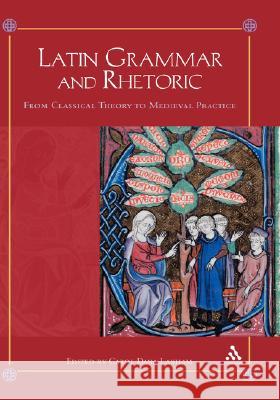Latin Grammar and Rhetoric » książka
Latin Grammar and Rhetoric
ISBN-13: 9780826457080 / Angielski / Twarda / 2003 / 320 str.
No legacy from antiquity to the Latin Middle Ages was more pervasive, or more enduring, than that of grammar and rhetoric. Cicero's son would have felt at home in a Tudor schoolroom, and the classical curriculum is readily recognizable in that of the Tudor schoolroom. And yet, grammatical and rhetorical theory and practice did change during those 1500 years, in ways that continue to demand, and richly reward, investigation. The twelve essays in this book contribute to the rapidly growing body of knowledge about the teaching and uses of grammar and rhetoric in the Latin West from late antiquity to the dawn of a new era in the twelfth and thirteenth centuries. Since grammar and rhetoric dominated (indeed, almost monopolized) schooling from Cicero's Rome until the twelfth-century revival of Roman law and the rise of universities, clearly a collection of essay examining aspects of these two subjects will, by definition, enrich the larger history of education as well. This transitional period of profound cultural change throughout the former Roman Empire-including the spread of Christianity, the decline of public schools, and the influx of non-Latin-speaking peoples-rewards a diachronic focus on delimited, sharply focused topics. Each author considers such questions as: How did medieval teachers and writers interpret or "repurpose" grammatical and rhetorical texts they inherited from antiquity? What innovations, what new attitudes, did they bring to the task of teaching these two foundational subjects? The book should appeal to students and teachers of classics and late antiquity, rhetoric, the history of education, monasticism, and medieval studies in general.











